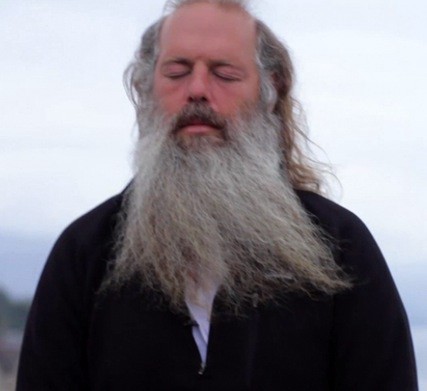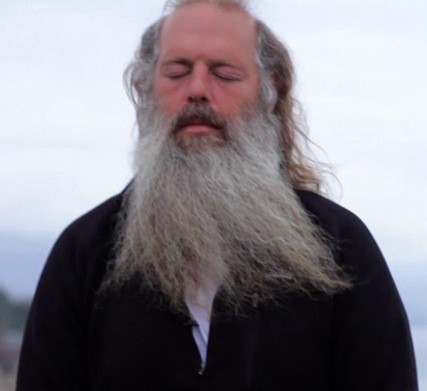Rick Rubin on Instinct, Minimalism and Kanye Going “Full-On NBA Finals”


At Newsweek, Andrew Romano interviewed the legendary Rick Rubin, and the piece is full of surprising windows onto the genius-brain of the man who’s produced Public Enemy, Beastie Boys, Run-D.M.C., Metallica, Black Sabbath, Danzig, Jay-Z, Johnny Cash, Adele and more.
On being called in to doctor up Yeezus:
Did he realize how much more work it needed?
To me it seemed impossible what he was asking. I remember I wasn’t feeling that well that day, and I was thinking, Is the music making me sick? I don’t feel good about this. We ended up working probably 15 days, 16 days, long hours, no days off, 15 hours a day. I was panicked the whole time.
[…] It’s a good thing you were on the same wavelength, because the sheer logistics of finishing the album must have been daunting.
Three days before Kanye had to turn the record in he tells us, “I’m going to Milan tonight.” There are probably five songs that still need vocals at this point. Two still need words! So he says, “I have to go to this baby shower before I go to Milan. I’ll be back at 4 p.m., and from 4 to 6 I’ll do the vocals. Then I have to go.” I say, “OK,” thinking it’s not OK, and he says, “Don’t worry. I’ll score 40 points for you in the fourth quarter.” Again it just seemed impossible, but that’s basically what he did. He didn’t come back until after 4, and we probably didn’t start until after 5. He said, “I have an hour and 10 minutes. Let’s go.” And then it was full-on NBA finals [laughs]. It probably ended up taking two hours. Five vocals. He wrote two lyrics on the spot.
On setting up a meeting in his NYU dorm room with 16-year-old LL Cool J (and, essentially, changing the way rap was written):
This was before rap songs really had structure. Often they could be eight, nine minutes long — one entire side of a 12-inch. So I would go through LL’s lyric book and say, “Let’s use these eight bars as a verse, and let’s use these 16 bars as a verse, and this phrase here is going to be the hook, and that will be repeated.”
That was a fairly revolutionary approach.
It hadn’t really happened before in rap. And I think the reason I did it was really just my having grown up with the Beatles. That’s how I heard music — in a song format.
On less-is-more:
I think one of the things that really drew me to hip-hop was how you could get to this very minimal essence of a song — to a point where many people wouldn’t call it a song. My first credit was “Reduced by Rick Rubin.” … There’s a tremendous power in using the least amount of information to get a point across.
There are many more gems in this interview — Rubin talks about getting on a train with Adam Yauch and writing “Girls” as a rap version of “Shout,” and about meeting Johnny Cash at a point when he’d “given up on himself as a recording artist,” and about the way his musical instinct is a “body function, like running from a tiger” — but perhaps I should stop blurbing and let you read it for yourself.